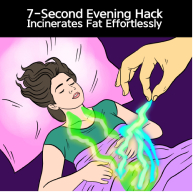Understanding Mood Swings and Their Impact
Mood swings involve rapid and intense fluctuations in emotional states that can deeply affect daily life, relationships, and overall well-being. These shifts may range from feelings of euphoria to irritability or profound sadness, often leaving individuals feeling overwhelmed or out of control. While occasional mood changes are a natural part of life, persistent or severe mood swings may indicate underlying medical or psychological issues requiring appropriate treatment.
Pharmacological Treatments for Mood Stability
Effective mood swing treatment often begins with pharmacological interventions, particularly when mood fluctuations stem from mood disorders such as bipolar disorder or major depressive disorder.
Mood Stabilizing Medications
Mood stabilizers are pivotal in managing extreme mood variations, especially in bipolar disorder. Commonly prescribed mood stabilizing medications include:
- Carbamazepine: An anticonvulsant effective in controlling manic episodes.
- Divalproex: Used for both manic and depressive phases.
- Lamotrigine: Particularly helpful in preventing depressive episodes.
Adjunctive medications like gabapentin and topiramate may also support mood regulation alongside primary mood stabilizers, though they are less commonly used as standalone treatments.
Antidepressants and Other Medications
Antidepressants such as selective serotonin reuptake inhibitors (SSRIs) — including sertraline, fluoxetine, and escitalopram — are frequently prescribed for depressive symptoms. Other classes like serotonin-norepinephrine reuptake inhibitors (SNRIs) and atypical antidepressants may be considered if SSRIs are ineffective.
Antipsychotic medications may also be employed as primary or adjunctive treatments for managing severe mood symptoms or psychotic features related to mood disorders.
Safety and Clinical Considerations
When prescribing mood stabilizing medications, clinicians must carefully evaluate factors including symptom severity, medical history, pregnancy status, and potential side effects. For women of childbearing age, teratogenic risks associated with some medications (notably valproic acid) necessitate thorough counseling and consideration of alternatives.
Regular therapeutic drug monitoring and personalized treatment plans enhance efficacy and safety.
Therapeutic Approaches for Mood Management
Alongside medication, psychotherapy plays a vital role in mood swing treatment, providing tools and strategies to manage emotional fluctuations effectively.
Cognitive Behavioral Therapy (CBT)
CBT is a structured, goal-oriented psychotherapy focusing on identifying and reshaping negative thought patterns and behaviors that contribute to mood instability [1]. Key components include:
- Recognizing and challenging cognitive distortions.
- Behavioral activation to encourage engagement in mood-enhancing activities.
- Developing coping skills to respond more adaptively to emotional triggers.
CBT’s efficacy has been well-documented across various mental health conditions, including depression and anxiety, making it a cornerstone for managing mood swings.
Dialectical Behavior Therapy (DBT)
Originally developed for borderline personality disorder, DBT effectively addresses intense emotional dysregulation [2]. It incorporates four core skills:
- Mindfulness: Enhancing present-moment awareness.
- Distress Tolerance: Coping strategies for crisis situations.
- Emotion Regulation: Techniques for modulating strong emotions.
- Interpersonal Effectiveness: Improving communication and relationship skills.
Clinically, DBT has demonstrated success in reducing self-harm behaviors and improving social functioning.
Interpersonal Therapy (IPT) and Psychodynamic Therapy
IPT focuses on resolving interpersonal issues that may exacerbate mood symptoms, while psychodynamic therapy explores unconscious patterns and past experiences influencing current emotional states.
Lifestyle Interventions and Coping Strategies
Adopting lifestyle modifications complements medical and therapeutic interventions, helping to stabilize mood and enhance emotional resilience.
Nutrition and Physical Activity
Eating a balanced diet rich in lean proteins, colorful vegetables, omega-3 fatty acids, and antioxidants can support neurotransmitter function and reduce inflammation, essential for mood regulation. Reducing processed foods and added sugars helps maintain stable blood sugar levels.
Regular physical activity, including moderate aerobic exercise, yoga, or tai chi, boosts mood-enhancing chemicals such as serotonin and endorphins, improves sleep quality, and elevates self-esteem.
Mindfulness and Stress Reduction Techniques
Mindfulness meditation and controlled breathing exercises reduce stress hormones, improve emotional awareness, and promote relaxation. Techniques such as deep breathing and grounding methods provide practical tools to manage emotional turbulence.
Light Therapy and Time in Nature
For those affected by seasonal mood changes, light therapy using bright light boxes can enhance serotonin production and regulate circadian rhythms.
Spending time outdoors has been shown to reduce stress hormones and improve overall well-being.
Sleep Hygiene
Maintaining consistent sleep schedules and optimizing the sleep environment are foundational to emotional balance, as disrupted sleep is strongly linked to mood disorders.
Hormonal Influences and Medical Causes of Mood Swings
Understanding the physiological underpinnings of mood swings is crucial, especially for women over 35, who may experience hormonal fluctuations impacting emotional health.
Medical Conditions Associated with Mood Instability
Several medical conditions can trigger or exacerbate mood swings:
- Thyroid Disorders: Both hyperthyroidism and hypothyroidism profoundly affect mood and cognition. [3]
- Premenstrual Syndromes (PMS and PMDD): Hormonal shifts before menstruation cause irritability, anxiety, and depressive symptoms.
- Neurological Disorders: Alzheimer’s disease, dementia, and other brain conditions can disrupt emotional regulation.
- Blood Sugar Imbalances: Diabetes and hypoglycemia influence mood through glucose sensitivity.
- Medication Side Effects: Certain drugs, including hormonal therapies and steroids, may induce mood alterations.
Hormonal Imbalances in Women
Hormonal fluctuations, particularly involving estrogen and thyroid hormones, play a significant role in mood regulation. Conditions such as estrogen dominance or low estrogen levels cause symptoms including mood swings, fatigue, brain fog, and irritability.
Hormonal therapies, including hormone replacement therapy (HRT) for menopausal symptoms and thyroid hormone replacements, can be effective treatments when medically indicated.
Diagnosing Hormonal and Medical Contributors
Diagnosis typically involves comprehensive physical exams, blood hormone level testing, imaging studies, and referrals to specialists like endocrinologists.
Timely identification of medical and hormonal contributors allows for targeted interventions, significantly improving mood stability.
Complementary and Alternative Medicine (CAM) for Mood Disorders
Many women seek complementary approaches to support traditional treatments or manage mild symptoms. [4]
Evidence-Based CAM Therapies
- Herbal Remedies: St. John’s Wort, saffron, and lavender have displayed antidepressant and anxiolytic properties.
- Mind-Body Practices: Yoga, tai chi, and mindfulness meditation improve emotional resilience and stress management.
- Acupuncture: Shown to reduce depressive symptoms, especially as adjunctive therapy.
- Nutritional Supplements: Omega-3 fatty acids and vitamin D may benefit individuals with deficiencies.
Safety and Clinical Considerations
While CAM therapies are generally well-tolerated, potential herb-drug interactions and supplement quality should be monitored under professional guidance. CAM should complement, not replace, prescribed treatments unless advised by healthcare providers.
How to Manage Mood Swings: Practical Tips
- Seek Professional Evaluation: Persistent mood swings warrant a thorough medical and mental health assessment.
- Adhere to Treatment Plans: Consistency in medication and therapy enhances effectiveness.
- Adopt Healthy Lifestyle Habits: Balanced nutrition, exercise, sleep hygiene, and stress reduction techniques support emotional stability.
- Stay Connected: Maintain supportive relationships and engage in community or support groups.
- Monitor Symptoms: Keep a mood diary to recognize patterns and triggers.
Conclusion
Achieving lasting emotional balance requires an integrative approach encompassing pharmacological treatments, psychotherapy, lifestyle modifications, and, when appropriate, complementary therapies. Women over 35 experiencing mood swings should collaborate closely with healthcare professionals to develop personalized, evidence-based treatment plans. With comprehensive care and self-management strategies, mood swings can be effectively controlled, leading to improved quality of life and emotional well-being.
Frequently Asked Questions (FAQs)
Q1: What are the common medications used for mood swing treatment?
A1: Mood stabilizing medications such as carbamazepine, divalproex, and lamotrigine are commonly used, alongside antidepressants like SSRIs and, in some cases, antipsychotics.
Q2: How does Cognitive Behavioral Therapy help with mood swings?
A2: CBT helps individuals identify and change negative thought patterns and behaviors that contribute to mood instability, providing skills to better regulate emotions.
Q3: Are lifestyle changes effective for managing mood swings?
A3: Yes, adopting regular physical activity, a balanced diet, proper sleep hygiene, and mindfulness practices can significantly support mood stabilization.
Q4: Can hormonal imbalances cause mood swings in women over 35?
A4: Absolutely. Hormonal changes related to menopause, thyroid disorders, and other endocrine conditions can impact mood and emotional regulation.
Q5: Is complementary and alternative medicine safe for mood disorders?
A5: Many CAM therapies have favorable safety profiles and may effectively supplement traditional treatments, but they should be used under medical supervision to avoid interactions and ensure appropriateness.







